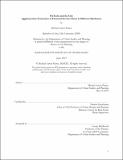| dc.contributor.advisor | Dennis Frenchman. | en_US |
| dc.contributor.author | Pearce, Michael Aaron. | en_US |
| dc.contributor.other | Massachusetts Institute of Technology. Department of Urban Studies and Planning. | en_US |
| dc.date.accessioned | 2020-02-28T20:51:42Z | |
| dc.date.available | 2020-02-28T20:51:42Z | |
| dc.date.copyright | 2019 | en_US |
| dc.date.issued | 2019 | en_US |
| dc.identifier.uri | https://hdl.handle.net/1721.1/123935 | |
| dc.description | This electronic version was submitted by the student author. The certified thesis is available in the Institute Archives and Special Collections. | en_US |
| dc.description | Thesis: M.C.P., Massachusetts Institute of Technology, Department of Urban Studies and Planning, 2019 | en_US |
| dc.description | Cataloged from student-submitted PDF version of thesis. | en_US |
| dc.description | Includes bibliographical references (pages 97-101). | en_US |
| dc.description.abstract | Although agglomeration is widely studied through wages, industrial output, capital, and innovation, research using real estate rates remains sparse; this is the case even though commercial real estate rents may serve as the most effective measure of agglomeration. To remedy this gap in the literature, this thesis seeks to understand the rental premium associated with the agglomeration of financial services firms and startups in Midtown Manhattan. The research relies upon hedonic regression to calculate the marginal impact of additional financial services firms, employment, annual sales, startup funding, and job postings on the rent paid by financial services firms in Midtown Manhattan. To understand whether the agglomeration effects diminish rapidly over space, I conduct these analyses at three radii: 100 meters, 250 meters, and 500 meters. Ultimately, my research confirms the statistically and substantially significant presence of agglomeration among financial services in Midtown. Furthermore, this thesis contributes to existing agglomeration economics research by specifying, in the same study, agglomeration impacts deriving from a given industry's established businesses as well as its startups. | en_US |
| dc.description.statementofresponsibility | by Michael Aaron Pearce. | en_US |
| dc.format.extent | 101 pages | en_US |
| dc.language.iso | eng | en_US |
| dc.publisher | Massachusetts Institute of Technology | en_US |
| dc.rights | MIT theses are protected by copyright. They may be viewed, downloaded, or printed from this source but further reproduction or distribution in any format is prohibited without written permission. | en_US |
| dc.rights.uri | http://dspace.mit.edu/handle/1721.1/7582 | en_US |
| dc.subject | Urban Studies and Planning. | en_US |
| dc.title | FinTechs and the city : agglomeration economies of financial services firms in Midtown Manhattan | en_US |
| dc.type | Thesis | en_US |
| dc.description.degree | M.C.P. | en_US |
| dc.contributor.department | Massachusetts Institute of Technology. Department of Urban Studies and Planning | en_US |
| dc.identifier.oclc | 1140204978 | en_US |
| dc.description.collection | M.C.P. Massachusetts Institute of Technology, Department of Urban Studies and Planning | en_US |
| dspace.imported | 2020-02-28T20:51:42Z | en_US |
| mit.thesis.degree | Master | en_US |
| mit.thesis.department | UrbStud | en_US |
